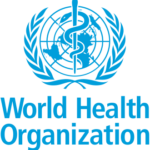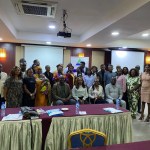By Felicia Imohimi
Syngenta Foundation For Sustainable Agriculture (SFSA), an NGO, and other stakeholders have recommended key policy on rice standards to optimise production.
The key policy will also make the product and its value chain competitive and acceptable at global markets.
Mr Isaiah Gabriel, Country Programme Manager of SFSA, said the policies should encapsulate investment in research and development for developing drought and flood resistance seeds, specific grading standards to improve quality and price structure of rice.
Gabriel said this at the Rice Value Chain Validation workshop, on Thursday in Abuja, aimed at unveiling survey reports conducted in different parts of the country on rice value chain to stakeholders.
The workshop is tagged ”Strengthening Nigeria Rice Value Chain”.
Gabriel said that raising the country’s rice industry was about addressing inefficiencies in the entire supply chain.
He said aside pre-harvest losses due to various factors ranging from rodents, pests, weather post-harvest losses vary widely from farm to farm, with losses ranging from eight per cent to 55 per cent.
“These losses result in significant industry wastage of produced rice never reaching consumers because of poor post-harvest management practices.
“Major post-harvest loss of grain occurs across the value chain and farmers especially in storage, processing and transportation.
“These weak links in the supply chain must be addressed to sustain investment efforts in the country’s rice value chain, “he said.
Gabriel said in view of the importance of rice as staple food in the country, boosting its production had been accorded priority by the government through efforts by the Rice Farmers Association of Nigeria (RIFAN) and CBN.
According to him, the efforts had improved management practices, increased usage of hybrid rice varieties and expanded production area.
The development sector, according to him, had also played a key role in strengthening farmer organisations and boosting production volume among rice farmers.
The programme manager, however, said that while rice cultivation had increased, yields have remained relatively constant at 2.5 metric ton per hectare.
Gabriel identified the yield as half of the average achieved in Asia.
According to him, there remains potential to raise the productivity and quality of the nation’s rice industry to a global standard.
He said the goal of the study conducted by the organisation and DERFTDAN Resources, an NGO, was to provide an overview of rice production, post-harvest processing and marketing segments.
Gabriel said: “It is also to identify challenges, gaps and explore strategies for translating China’s successful value chain practices into approaches that can be adopted in the country to boost its rice production and processing.
“The goal is to identify the funding gaps and establish priorities, targets and timelines for mobilising resources from domestic and international investors and donors in support of a strengthened rice value chain in Nigeria.”
He said the study conducted by SFSA in collaboration with DERFTDAN was supported by 2,249 farmers surveys across eight states of Cross Rivers, Edo, Ebonyi, Jigawa, Kano, Kebbi, Nasarawa and Niger.
Mr Richard Ogundele, Senior Agribusiness Consultant, DERFTDAN Resources, identified some of the gaps in rice production as lack of access to quality seed, mechanisation, irrigation, input among others.
According to him, opportunities to improve rice production in Nigeria cut across access to quality seed, fertilisers, mechanisation, irrigation and extension delivery services.
Ogundele said: “If we cannot get these right, we will not be able to get there.”
He further said the nation needed to be focused and firm in its policy on rice, identifying market oriented and import dependent policy as the surest way to meet global demand.
“Once we get the rice standard right, every other thing will be in order.
“Another thing is private sector investment in irrigation, seed and mechanisation, even if you want to farm five hectares of rice commercially.
”If you do not mechanise, adopt irrigation and quality seed, you are a failure.
In terms of seed production, 57 per cent of farmers get their seed from their old cultivation.
“So, if you do not get improved seed you cannot get higher yield even if you get the best agronomy practices, Ogundele added,” he said. (NAN)(www.nannews.ng)
====================
Edited by Abiemwense Moru/Bashir Rabe Mani











